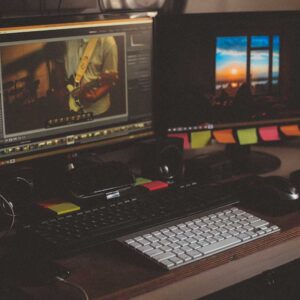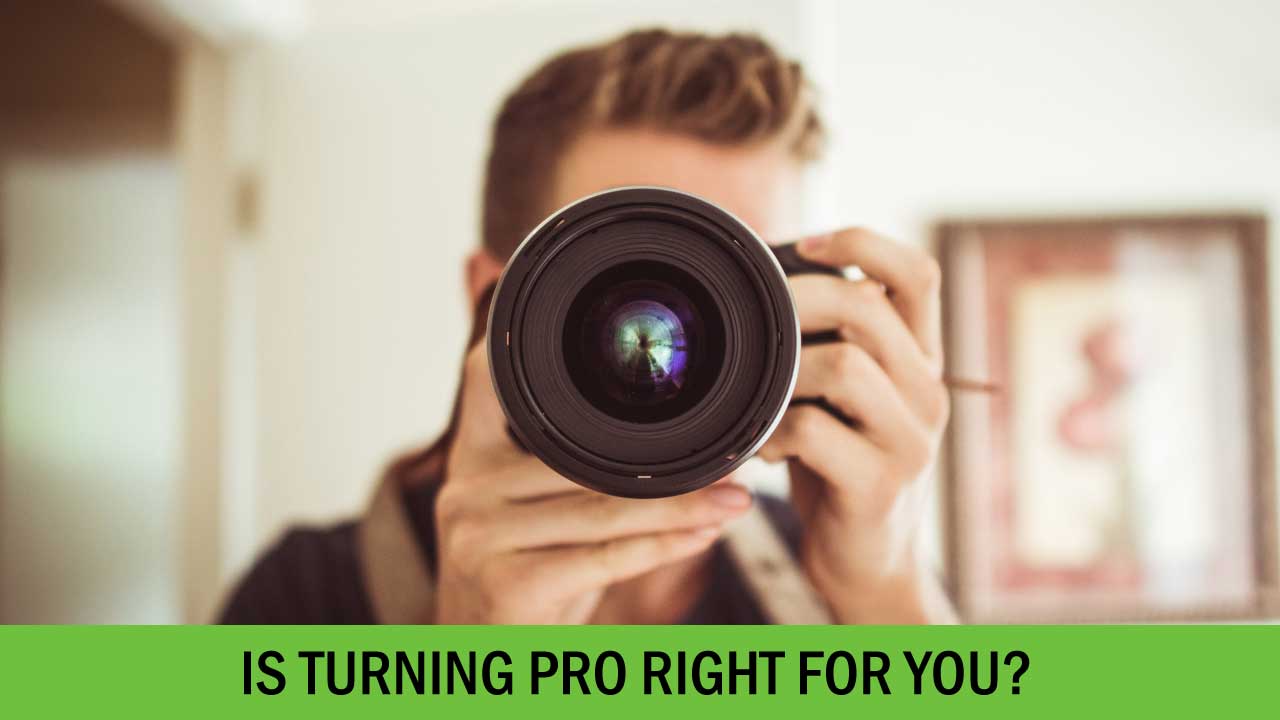
So you want to turn your passion in to your job.
I did that.
Let me tell you the biggest mistake people make and how you can avoid it.
How to Turn Pro
Here’s something I learned from bitter experience:
More on that in a second. First, there’s a question that’s emailed to me regularly by readers of my [sc name=”popup-newsletter” linktext=”photography newsletter” ] — “Should I go to college to study photography or should I get an internship with a professional photographer?” I’ve just written an article about that which gives my view.
If you need it, take a look and then hit the Back button to come back here.
A Hard Truth
Being a Professional Photographer is not just about technique, equipment and aesthetics. There are plenty of websites that talk about those. You don’t need me to recycle them here.
There is a ‘must have‘ talent that most other photography sites never talk about (probably because all they really want is to get you so excited that you hit the Share button).
On this page I’m going to focus on a ‘must have’ talent that you need to make it as a professional photographer. And a couple of other things that few people ever mention.
Here you go:
- Business Skills
- Passion (it’s not what you think)
- Motivation (how photographers kill theirs)
Sound boring? No problem. For you I have some videos of cats doing funny things 🙂
Still here? Cool. You haven’t missed out—I have a video for you further down (sorry, it’s not cats though). I just wanted to get rid of the time wasters.
Business
So what type of photography do you want to make a living from?
Do you want to open a studio and sell your portraiture, wedding and/or commercial photographic services?

Perhaps you want to be employed by a newspaper or publisher? How about forensic photography, scientific, medical, military and all the other employers of photographers that many people never think about?
If you’re thinking the ‘job’ route, get a portfolio and get applying. Brush up on your interview skills. Sorted.
Or maybe you’re thinking you’ll be able to feed yourself by traveling the world and selling stock images? If that’s the case, give it a try but ensure you have a Plan B. Stock is hard these days. Anyone with an iPhone can upload images to a stock library—and most of the public can’t tell the difference.
Setting Up a Studio
If you fancy setting up a studio or photography business, you need to think about some hard realities.
First is money. And not just the money to buy the equipment, fit out the studio and pay for attorneys, accountants and advertising.
You need cashflow.
You need people handing you money for the work you’ve done. There needs to be enough people, handing you enough money, often enough to pay all your business bills and still have some left over to re-invest in to your company and pay for food, health insurance and the roof over your head.
The only way you can be confident about that is to do your research.
You need a plan. Not some guesstimate scribed down hastily. You need a well thought out professional business plan.
If you don’t have the skills to write a business plan yourself, stop reading and hire someone who does. Going pro is not something to casually stake your entire life on.
A Photographic Studio is a Business

Running a professional photographic studio is, whether or not you like the idea, a business.
I know that doesn’t sit well with certain fluffy creative types.
“Build it and they will come” should stay firmly rooted in entertainment—believe in that fantasy and you could find yourself living in a sleeping bag on the sidewalk pretty soon.
To be successful you need business skills.
The most successful professional photographers I know are great business people.
Their ability to sell their services, motivate people and manage money brings them financial security. With financial security comes the ability to make choices—to have a family, to take vacations, to give to charities and do voluntary work.
Being a great photographer is NOT enough to make you a successful professional.
Flat Broke vs Comfortable Lifestyle
I know a lot of professional photographers to work long hours, earn a pretty basic wage and struggle to feed their family.
I know one or two pretty average photographers who earn a LOT of money.
I read an excellent book early in my photographic career. It’s called The E-Myth by Michael E. Gerber. It discussed why most businesses fail within a few years of starting up and what you can do to make sure you’re not one of them.
I believe that I would have gone bankrupt if I hadn’t read that book and applied it to my life and business.
The truth is that most small business owners are DREADFUL business people.
They have no idea how to market. No idea how to sell. And no idea how to get people coming back for more.
Gerber explains all this and gives a bunch of strategies for becoming great at business. I would urge anyone who is considering becoming a professional photographer to concentrate at least as much on learning how to be good at sales, marketing and business as they do on learning to be good at photography.
That’s a big one. Don’t miss it. Please, read it again. Read it out loud. Grab a pen and write it down.
Seriously. Did you do that?
Buy the books and get the training. It’ll make ALL the difference between you becoming a successful pro and you having to get a job behind a bar to feed your kids after your business folds.
Follow Your Passion
I was told, aged 17, to follow my passion by someone who meant well.
I have a lot to say about that but this video says it better than I can:

Motivation

So you’re passionate about photography. You checked the weather forecast before you went to bed last night. You got up at 4 am to ensure you got to the location in time for the sun to rise. You set up your shot and waited until … it was … exactly … the right time … to press the … button.
There it is. The perfect sunrise. Your exposure is spot on. Your pre-visualised composition is perfect. You’ve got it! Next, you get home and spend hours learning Photoshop to make the shot even better.
That’s the kind of motivation photographers have at the start.
I know plenty of professional photographers who have lost that feeling.
They show up to work every day with no motivation—bored with taking photos for other people. Their passion has become their JOB. They don’t take photographs for themselves anymore. They may as well be working a nine to five in an insurance office (they’d probably earn more).
The problem is that they aren’t in control. Their staff and/or customers are sources of extreme stress. Money and cashflow is causing them sleepless nights. In short, their business controls them. Photography has become a burden to them; no longer a joy.
Escaping the Job You Hate
If you are thinking about turning Pro to escape a job you hate, that is a very bad strategy. If you hate your job so much you’d do anything to get away you aren’t thinking straight.
You do not become self-employed to escape working for a jerk. You become better at being employed. No, really, with the right tactics you can turn around your working environment so that you actually start to enjoy your job. And being employed has a load of advantages—not least the fact that someone else has to worry about how to make enough money to pay your salary.
What You Can Do Today
Want to avoid this trap? Enroll on a business skills course today! It could be a night class. It could be on-line. But you need to know how to sell/market, manage people and manage money.
If you can’t afford to take a course ask yourself if you can afford (right now) to be a professional photographer.
Conclusion

If you’re thinking about turning pro, think about it real hard.
Ensure you have the financial side sorted. If you have a partner and children, be sure you can support them. If you have no ties ensure that, in a year from now, you won’t be putting emotional pressure on your family and friends to loan you money because the business isn’t going well.
Ensure you have the skills, professional advice and motivation needed to run a great business. A great business has a healthy cashflow. It can afford to pay you and your staff. It is a pleasure to work within it. If your business becomes an emotional drain, it’s time to read more and seek help.
Although I know some professional photographers who have a secure income and look forward to going to work every day, they are the exception. Most of the folks I went to college with no longer work in photography. Most of the ones who do are just over broke.
Photography is a fabulous hobby. For most people my recommendation is that it should remain just that: a hobby.
Now, with all that said: if you choose to turn Pro … I genuinely wish you every success. Do it right and it’s a VERY rewarding way to earn a living.
[sc name=”cta-newsletter” ]